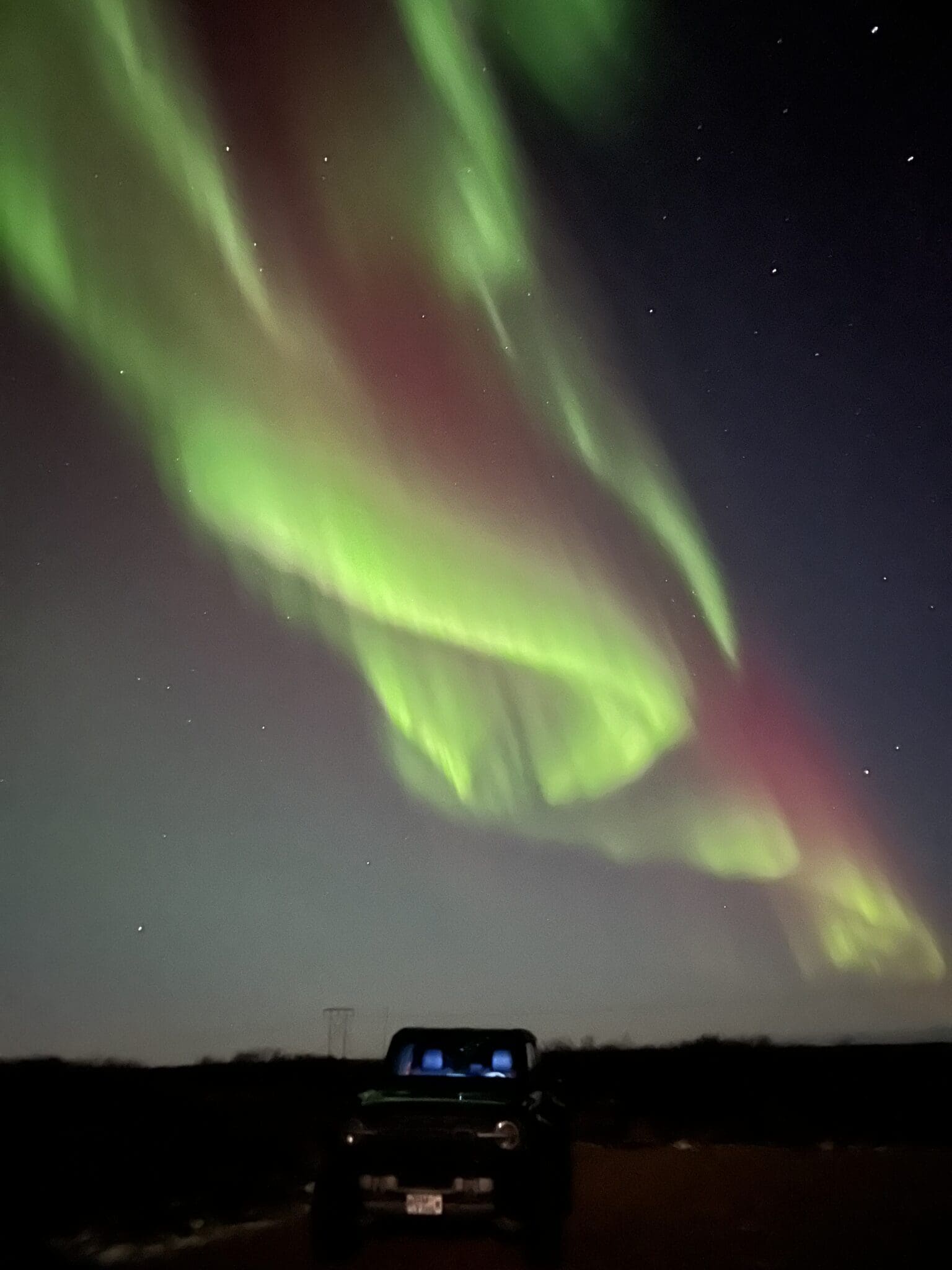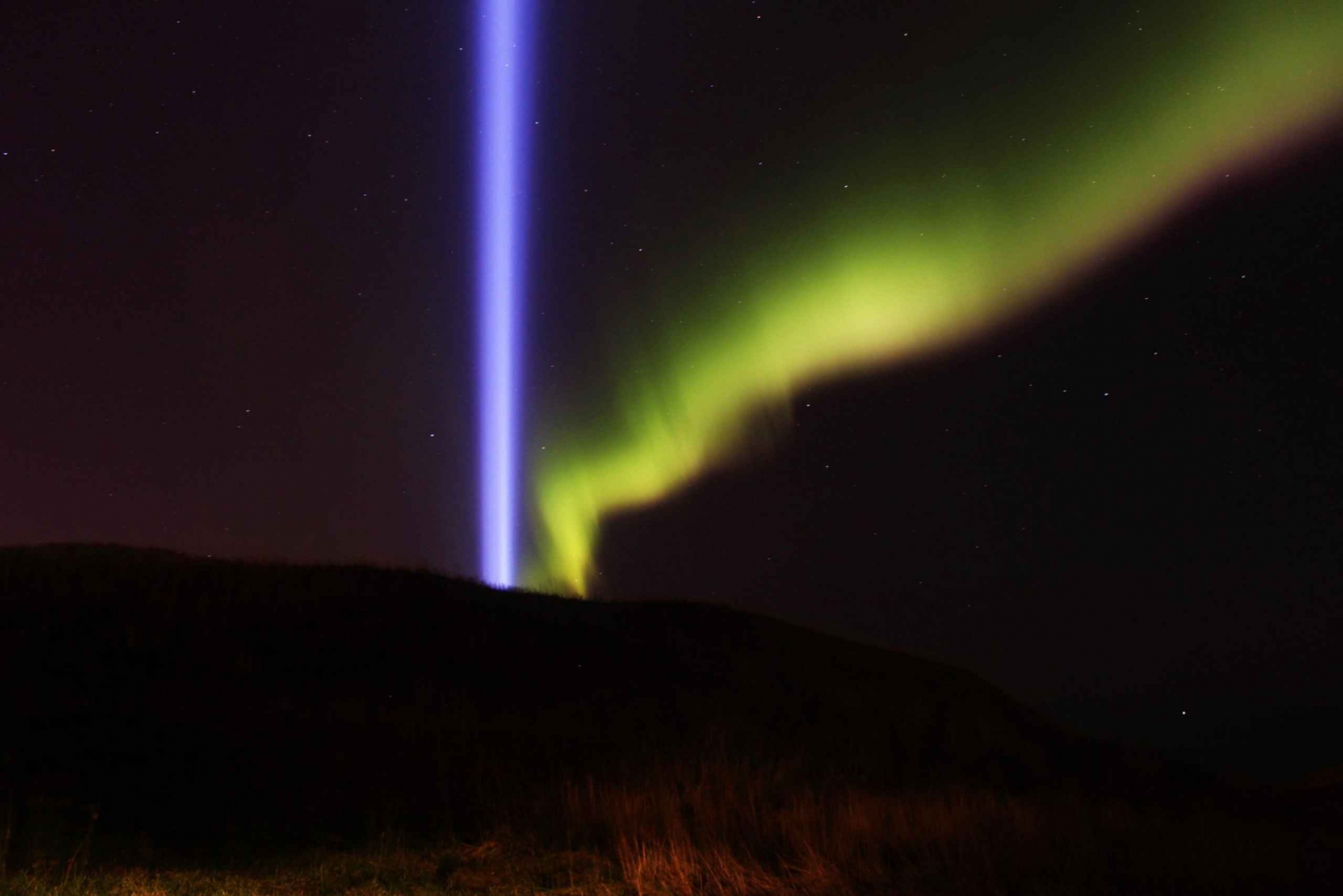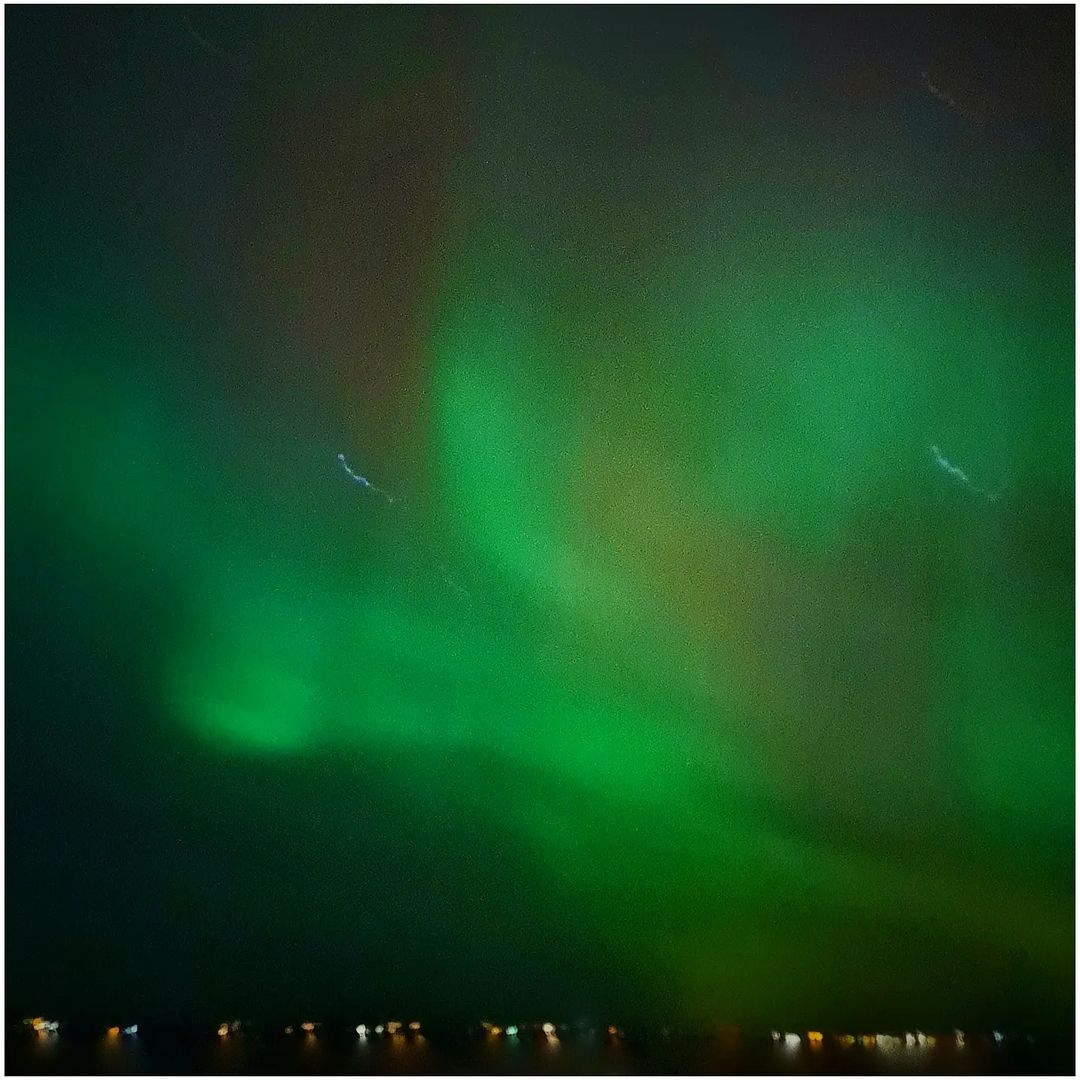Picture this: you are standing under an immense, inky sky, and suddenly, a magnificent dance of green, pink, and purple begins to unfold above you. This incredible light show, often called the Aurora Borealis, is a truly special sight, and many folks dream of witnessing it. For those thinking about a trip to Iceland's capital, Reykjavik, to catch a glimpse of this natural wonder, knowing when to plan your visit can make all the difference, you know, in making that dream a reality.
Getting to see the Northern Lights is a bit like playing a waiting game with nature, actually. It takes a mix of dark skies, clear weather, and strong solar activity. Reykjavik, with its position so far north, offers a pretty decent spot for this celestial display, but the time of year you choose to go can greatly affect your chances of seeing those shimmering curtains of light. Picking the right moment means considering a few things, like how many hours of darkness there are and what the weather might be doing.
We'll walk through the various times of the year, giving you a clearer picture of when conditions might be most favorable for experiencing the Aurora Borealis in and around Reykjavik. It's all about stacking the odds in your favor for that unforgettable experience, and we'll help you figure out what that looks like, more or less, for your trip.
- Symbol Of The Euro
- Jp Morgan Chase Mortgage
- Yesstyle Tracking
- Kaitlyn Krems Bra Size
- Expired Vicks Vaporub
Table of Contents
- When Do the Lights Typically Show Up in Reykjavik?
- The Darkest Months for Seeing Northern Lights in Reykjavik
- What About the Weather for Seeing Northern Lights in Reykjavik?
- Planning Your Visit Around the Moon for Seeing Northern Lights in Reykjavik
- Is It Possible to See Northern Lights in Reykjavik During the Shoulder Seasons?
- Getting Away From City Glow for Seeing Northern Lights in Reykjavik
- The Best Time of Year to See Northern Lights in Reykjavik - A Summary
- Final Thoughts on Seeing Northern Lights in Reykjavik
When Do the Lights Typically Show Up in Reykjavik?
The Aurora Borealis is a phenomenon that really needs darkness to be seen clearly. This means that during Iceland's bright summer months, when the sun barely sets, seeing the Northern Lights is just not going to happen. The season for witnessing this amazing display generally stretches from late August through to late April. Within that broader period, some months offer a far better opportunity than others, due to the length of the nights and, well, the general atmospheric conditions. It's like trying to find a tiny light in a very bright room versus a very dark one; the darker the room, the easier it is to spot, you know?
Think of it this way: the longer the period of true darkness each day, the more hours you have for the lights to make an appearance. So, while you might catch a glimpse in August or April, the chances are a bit slimmer compared to the deep winter months. It's a balance of dark skies and a bit of luck, honestly. The sun's position really dictates the window of opportunity, and in Iceland, that window opens up quite wide once autumn arrives and closes when spring really gets going.
The Darkest Months for Seeing Northern Lights in Reykjavik
For many people, the very best time to try and see the Northern Lights in Reykjavik runs from September to March. These are the months when the nights are at their longest, providing many hours of deep darkness. December and January, in particular, have incredibly short daylight periods, meaning the night sky stretches for a significant portion of the day. This gives you a much bigger window each day for the lights to show themselves, assuming other conditions are right, of course. It's during these months that the sky becomes a truly vast canvas for nature's light show.
- Male Mastrabation Techniques
- When Does Aquarius Season Start
- Tom Hopkins Net Worth
- Kill Bamboo
- What Are Scorpions Powers And Abilities
During these peak months, the sun might only be up for a few hours around midday, especially in December and January. This means you have a solid 18 to 20 hours of potential viewing time each day. While the cold can be quite biting, and the weather can be a bit unpredictable, the sheer amount of darkness makes these months incredibly appealing for anyone hoping to tick the Aurora Borealis off their list. It’s a period when the chances of seeing northern lights in Reykjavik are at their peak, pretty much, due to the darkness.
What About the Weather for Seeing Northern Lights in Reykjavik?
Darkness is only one part of the equation; clear skies are another absolutely vital ingredient. You could have the darkest night imaginable, but if the sky is completely covered by clouds, you won't see a thing. Reykjavik's weather, like much of Iceland's, can be rather changeable. It's quite common for conditions to shift quickly from clear to cloudy and back again, sometimes within a matter of minutes. This means that even during the prime dark months, a cloudy spell can spoil your viewing chances, you know, for a night or two.
Checking the weather forecast, particularly cloud cover predictions, becomes a daily ritual for anyone chasing the lights. Many local tour operators and even the Icelandic meteorological office offer specific aurora forecasts that combine cloud cover with solar activity predictions. It’s a bit of a gamble, really, as you can't control the weather, but being prepared for all sorts of conditions, from crisp, clear nights to blustery, overcast ones, is a sensible approach. Sometimes, waiting just a little while can make all the difference for seeing northern lights in Reykjavik.
Planning Your Visit Around the Moon for Seeing Northern Lights in Reykjavik?
Something else that affects how well you can see the Northern Lights is the moon. A full moon, while beautiful in its own right, can cast a surprising amount of light across the night sky, making fainter aurora displays harder to spot. It's like trying to see stars when there's a bright streetlamp nearby; the brighter light tends to wash out the dimmer ones. So, for the very best viewing experience, many folks try to plan their trip during a new moon phase, or at least when the moon is just a thin crescent. This way, the sky is as dark as it can possibly be.
During a new moon, the sky is truly inky black, allowing even the most subtle shimmers of green and white to be visible. While a bright aurora can still shine through a full moon, those more gentle, ethereal displays are much more impressive under truly dark conditions. Checking a lunar calendar when you're picking your dates can be a smart move, especially if seeing the Northern Lights is the absolute main reason for your visit. It’s a small detail, but it can make a big impact on your chances of seeing northern lights in Reykjavik, as a matter of fact.
Is It Possible to See Northern Lights in Reykjavik During the Shoulder Seasons?
While the deep winter months offer the longest periods of darkness, the "shoulder seasons" – late August to early October and late March to late April – can still offer chances to see the Northern Lights, and they come with their own unique advantages. During these times, the weather in Reykjavik can be a bit milder than in the heart of winter, and there are more daylight hours to explore other sights around Iceland. This makes for a more balanced trip, where you can combine aurora hunting with other activities, like exploring the Golden Circle or enjoying the city's vibe.
The trade-off, of course, is that the nights are shorter, meaning fewer hours of darkness for the lights to appear. You might need to stay up a bit later, or perhaps be more flexible with your viewing times. However, if you're someone who prefers less intense cold and wants to experience more of Iceland's daytime beauty, these periods can be a very good choice. It's a different kind of experience, but still quite rewarding for those hoping to see northern lights in Reykjavik, in a way.
Getting Away From City Glow for Seeing Northern Lights in Reykjavik
Even if you're in Reykjavik during the absolute best time of year, the city's light pollution can make it harder to see the Northern Lights clearly. Bright streetlights and buildings cast a glow that can wash out fainter aurora displays. For the most spectacular views, it's almost always a good idea to get away from the city center. Many tour operators offer bus trips or super jeep tours that take you out into the darker countryside, often to places like Þingvellir National Park or other spots known for their wide-open, dark skies. These excursions significantly increase your chances of a truly impressive viewing.
Some people even choose to stay in accommodations outside of Reykjavik specifically to maximize their chances, perhaps at a countryside hotel or a guesthouse with less light around. If you're staying in the city, even just a short walk to a park on the outskirts, like Grotta Lighthouse or Öskjuhlíð hill, can help. The further you are from artificial lights, the more vibrant and detailed the aurora will appear, which is pretty much why these tours are so popular for seeing northern lights in Reykjavik.
The Best Time of Year to See Northern Lights in Reykjavik - A Summary
To sum things up, the prime window for seeing the Northern Lights in Reykjavik stretches from September through March. Within this period, the deepest winter months of December and January offer the longest hours of darkness, which is a significant advantage. However, clear skies are just as important as darkness, so checking the weather forecast and cloud cover is a daily must. Planning your trip around a new moon can also improve your chances of seeing fainter, more ethereal displays. While the shoulder seasons offer milder weather and more daylight for other activities, they come with shorter nights and perhaps a slightly lower chance of a strong display. Remember, getting away from the city lights, even if just a little, can greatly enhance your viewing experience, helping you get the most out of your quest to see northern lights in Reykjavik.
Final Thoughts on Seeing Northern Lights in Reykjavik
Ultimately, seeing the Northern Lights involves a bit of planning and a good deal of patience. While there are definitely times of year that offer a better shot, nature always has the final say. Being prepared for varying weather, dressing warmly, and staying flexible with your schedule are key. Whether you choose the peak darkness of winter or the slightly milder shoulder seasons, the experience of witnessing the Aurora Borealis dance across the Icelandic sky is something truly unforgettable. It’s an adventure that many people cherish, and with a bit of thought about when to visit, you can really improve your odds of catching that incredible show. So, good luck with your aurora hunt!
Related Resources:



Detail Author:
- Name : Prof. Keira Borer PhD
- Username : iwilliamson
- Email : satterfield.greyson@gmail.com
- Birthdate : 1998-07-16
- Address : 780 Lemke Rapid Suite 016 West Camylletown, AK 52875
- Phone : 513.223.2310
- Company : Crooks, Sauer and Marvin
- Job : Music Director
- Bio : Architecto delectus voluptatem voluptatem ducimus. Totam voluptas culpa repudiandae architecto dolore.
Socials
facebook:
- url : https://facebook.com/kerluke1972
- username : kerluke1972
- bio : Dolores aliquam deserunt velit voluptatem similique. Dolor qui omnis est earum.
- followers : 5235
- following : 1721
instagram:
- url : https://instagram.com/akerluke
- username : akerluke
- bio : Eum accusantium voluptas molestiae. Est sunt aut rerum eligendi ea adipisci ratione.
- followers : 2782
- following : 622